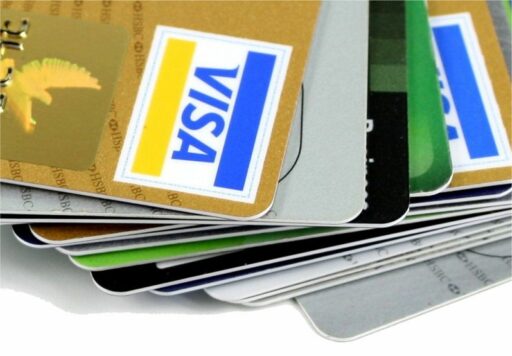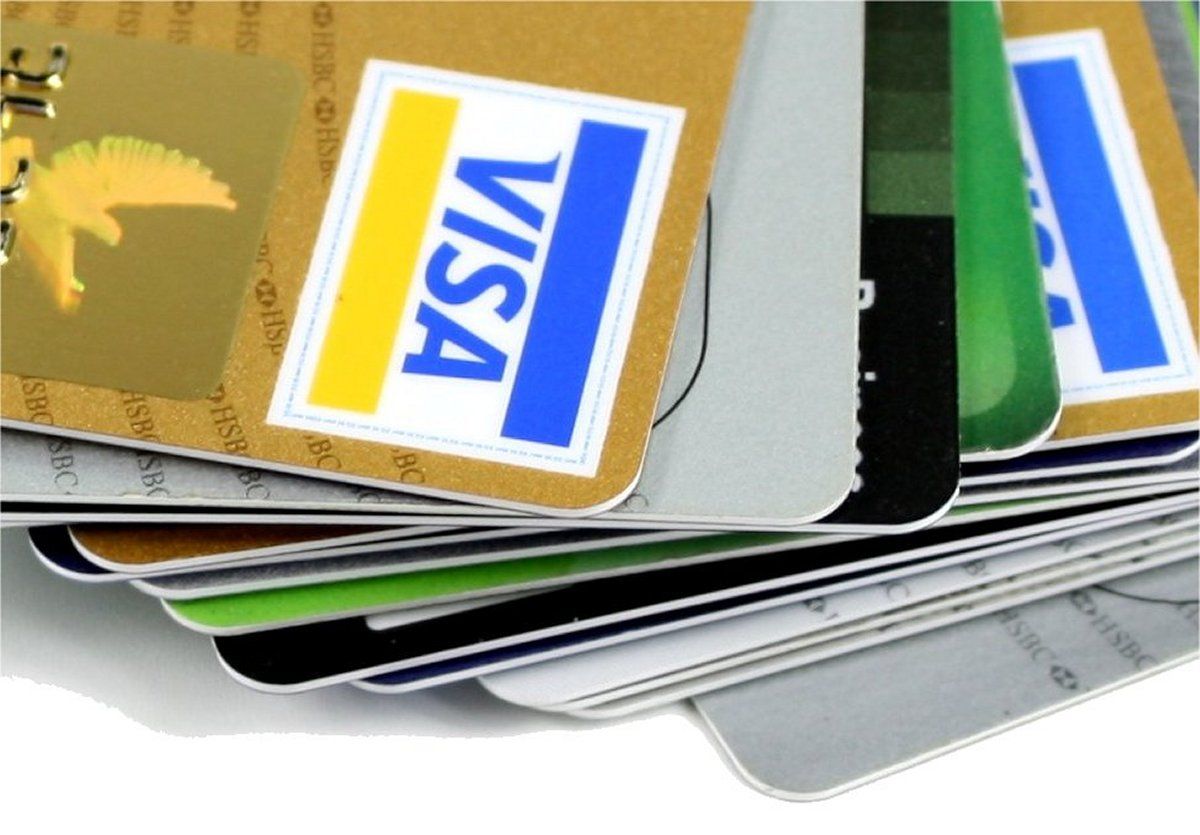When it comes to financing purchases, credit cards are a double-edged sword. While there are certainly drawbacks such as high-interest rates and the potential for overspending, credit cards can also offer a host of positive reasons that can be beneficial for consumers. These benefits range from building a solid credit history to providing emergency funding. This article explores the positive aspects of using a credit card to finance purchases, highlighting the advantages that can make them a valuable financial tool when used responsibly.
Key Takeaways
- Using a credit card responsibly can help build a strong credit history, which is critical for future financing opportunities.
- Credit cards offer rewards and incentives such as cashback, travel perks, and exclusive offers, adding value to every purchase.
- Purchase protection and security features like fraud protection and extended warranties safeguard your transactions.
- Credit cards provide financial management tools, including budget tracking and automatic payments, to help users maintain control over their finances.
- They offer flexibility in emergency situations and cash flow management through features like interest-free periods and balance transfers.
Building a Strong Credit History


Understanding Credit Scores
Credit scores serve as a numerical representation of your financial reliability, with higher scores indicating a greater likelihood of repaying debts on time. Maintaining a low credit utilization ratio is crucial, as it accounts for a significant portion of your credit score calculation. For instance, if your credit limit is $10,000 and you owe $2,000, your utilization rate is 20%. Keeping this ratio below 30% is generally advised to avoid negatively impacting your score.
It’s essential to understand the factors that influence your credit score, as they directly affect your financial opportunities. Timely payments, the length of credit history, types of credit used, and new credit inquiries are all components that shape your score.
By using credit cards judiciously, you can manage credit score factors effectively, ensuring a positive credit history. This, in turn, paves the way for future financial benefits such as easier approval for loans and lower interest rates, without the burden of debt accumulation.
Positive Impact of Timely Payments
Making payments on time is a cornerstone of good credit management. Timely payments contribute significantly to a positive credit history, which is a critical factor in your credit score calculation. By consistently meeting payment deadlines, you signal to lenders that you are a responsible borrower.
- Payment History: 35%
- Amounts Owed: 30%
- Length of Credit History: 15%
- New Credit: 10%
- Types of Credit in Use: 10%
Timely payments not only help avoid late fees and penalties but also play a pivotal role in maximizing your credit score. A history of on-time payments can lead to more favorable loan terms and lower interest rates in the future.
It’s important to understand that even one late payment can have a negative impact. Lenders and credit bureaus monitor your payment activity closely, and a blemish on your record can take time to recover from. Establishing a pattern of punctuality in payments is essential for reaping the long-term benefits of credit use.
Long-term Benefits for Future Financing
Using a credit card responsibly for purchases can have a significant impact on your financial opportunities in the future. Building a positive credit history is crucial for accessing better financing options down the line. This is particularly true for individuals and businesses looking to finance larger investments such as furniture or equipment repairs, while preserving liquidity for strategic investments and long-term growth initiatives.
Credit cards offer the flexibility to capitalize on time-sensitive opportunities, like limited-time discounts or seasonal demand spikes, without the need to deplete cash reserves. Over time, this can enhance your creditworthiness and strengthen your credit profile. A strong credit profile not only improves access to capital but also instills confidence in potential investors and suppliers, leading to strategic partnerships and business expansion opportunities.
By demonstrating responsible borrowing and utilizing online financing options, you can ensure that your credit card use contributes positively to your credit history. This, in turn, can lead to more favorable loan terms and payment arrangements in the future.
Understanding the long-term benefits of using credit cards for financing can help you make informed decisions that support your financial goals. Whether it’s negotiating favorable payment terms or utilizing trade finance solutions, a good credit history opens doors to a variety of financial advantages.
Rewards and Incentives


Cashback and Points Systems
Credit cards with cashback and points systems are a compelling reason to finance purchases using credit. By using cards that offer rewards on purchases, consumers and businesses alike can effectively earn money back or accumulate points that translate into savings or future benefits. For instance, certain cards may offer higher cashback percentages for specific categories such as groceries or fuel, incentivizing cardholders to use their card for these purchases to maximize rewards.
When considering rewards, it’s important to understand the various programs and their benefits. Here’s a quick overview of how some popular programs work:
- Amazon Affiliate Program: Earn rewards for purchases made through Amazon.
- Google Rewards: Accumulate points for using Google services.
- Yahoo! Rewards: Get points for engaging with Yahoo! platforms.
- Facebook Rewards: Receive incentives for activities on Facebook.
- Starwood Preferred Card: Enjoy free hotel stays as a reward.
- Capital One Shopping: Earn rewards for shopping through the program.
The key to maximizing credit card rewards is to align your spending habits with the card’s reward structure. This strategic approach can lead to significant savings and perks over time.
Travel Perks and Discounts
JSON
Exclusive Access and Offers
Credit cards often come with the allure of exclusive access and offers that are not available to the general public. These can range from special event tickets to early access to sales and promotions. For those who enjoy the finer things in life or are fans of particular brands, this can be a significant draw.
- Co-branded credit cards offer benefits tailored to specific interests, enhancing the shopping experience.
- Cardholders may receive invitations to private events or enjoy priority booking privileges.
- Some cards provide access to airport lounges, enhancing travel comfort.
Credit card exclusivity can transform everyday spending into a more rewarding experience, with perks that cater to personal preferences and lifestyle.
It’s important to consider the terms and conditions associated with these offers to ensure they align with your spending habits and provide real value. While the allure of exclusivity is tempting, it should complement, not dictate, your financial decisions.
Purchase Protection and Security


Fraud Protection Measures
Credit cards offer a critical layer of security through fraud protection measures. These measures are designed to shield cardholders from unauthorized transactions and potential identity theft. In the event of suspicious activity, credit card companies can quickly intervene, often before the cardholder is even aware of the issue.
- Security freeze: Temporarily prevents access to your credit report to stop new credit from being opened in your name.
- Fraud alert: Places a warning on your credit report to notify potential creditors to verify your identity before extending credit.
- Disputes: Allows you to challenge unauthorized transactions or billing errors on your account.
Credit cards expire for security upgrades, reliability, anti-fraud measures, and marketing opportunities for both customers and issuers.
The ability to dispute transactions not only provides a financial safety net but also ensures that cardholders are not held responsible for fraudulent charges. This aspect of credit card use is particularly valuable, as it can prevent long-term damage to one’s credit score and financial reputation.
Extended Warranties and Insurance
Credit cards often come with extended warranties and insurance benefits that can add significant value to your purchases. These perks may extend the manufacturer’s warranty, sometimes doubling it, at no additional cost. This means that if your new laptop or refrigerator breaks down after the standard warranty period, you might still be covered.
- Extended Warranty: Automatically extends the manufacturer’s warranty, usually by up to one year.
- Purchase Protection: Covers new purchases against damage or theft for a limited time.
- Return Protection: Offers the possibility to return items even if the merchant does not accept returns.
Credit card insurance can also provide coverage for lost or damaged items, offering peace of mind and financial security. This is particularly valuable for expensive or high-tech items that are prone to damage or theft.
Remember, terms and conditions vary by credit card issuer, so it’s important to review your card’s benefits to understand the scope of coverage. Utilizing these protections can save you money and hassle in the long run, making them a compelling reason to finance purchases with a credit card.
Section 75 Protection for Purchases
One of the lesser-known but highly valuable benefits of using a credit card is the Section 75 protection. This legal provision, part of the Consumer Credit Act 1979 in the UK, offers a significant layer of security when making purchases. If you buy something costing between
100 and 30,000 pounds using a credit card, the card issuer shares liability with the retailer if the goods or services are faulty, not as described, or not delivered.
The protection applies even if only a portion of the purchase was made on the credit card, ensuring that consumers are not left out of pocket for significant expenditures. This can be particularly reassuring when making high-value purchases such as electronics or booking travel arrangements.
The beauty of Section 75 is that it provides a straightforward way for consumers to claim a refund directly from the card issuer, bypassing potentially unresponsive retailers.
While this protection is a strong argument for using credit cards, it’s important to manage spending responsibly to avoid accumulating debt. Remember, the aim is to leverage the benefits without falling into the trap of overspending.
Financial Management Tools
Budget Tracking and Spending Analysis
Credit cards offer a sophisticated platform for budget tracking and spending analysis, enabling users to monitor their financial habits closely. With detailed monthly statements and online banking tools, individuals can easily categorize their expenses, identify spending patterns, and adjust their budgets accordingly.
- Monthly statements provide a breakdown of expenditures.
- Online tools help categorize and track spending over time.
- Alerts can be set for approaching credit limits or unusual activity.
By leveraging the data provided by credit card companies, users can refine their financial strategies and ensure they are aligning with their financial goals. This proactive approach to managing finances can lead to more disciplined spending and better financial health over time.
Credit Utilization and Its Effects
Understanding your credit utilization rate is crucial when using credit cards to finance purchases. This rate, which is the amount of available credit you’re using, significantly influences your credit score. Ideally, maintaining a utilization rate below 30% is recommended to avoid negative impacts on your credit rating. The lower the rate, the better it is for your credit health.
Keeping your credit utilization low is not just about staying under a specific percentage; it’s about financial discipline and ensuring that your credit score remains robust.
Here’s a quick guide to managing your credit utilization:
- Aim for a low balance: Keeping your balance well below your credit limit is key.
- Monitor your credit: Regularly check your credit report to ensure your utilization rate is reported correctly.
- Pay down balances: If possible, pay off your balance before the statement date to lower the reported utilization.
Remember, a high credit utilization can be a red flag to lenders, indicating potential over-leverage and financial stress. By managing your credit utilization effectively, you can avoid such pitfalls and maintain a healthy credit profile.
Setting Up Automatic Payments
One of the most effective strategies for maintaining a flawless payment record is to set up automatic payments for your credit card. This ensures that you never miss a due date, which is crucial since a payment that’s 30 days late can significantly damage your credit score and linger on your credit report for up to seven years.
By automating payments, you can opt to pay the minimum amount due, or any other specified amount, thereby avoiding late fees and potential negative marks on your credit history.
Additionally, utilizing automatic payments can help you maintain a low credit utilization rate, which is beneficial for your credit score. Here’s a simple breakdown of the process:
- Determine the payment amount you want to automate (minimum or full balance).
- Set up the autopay feature through your credit card’s online banking portal or mobile app.
- Monitor your account regularly to ensure payments are processed correctly.
Remember, while automatic payments can safeguard you from missed payments, it’s still wise to review your statements and manage your expenses to avoid accruing unnecessary debt.
Emergency Funding and Cash Flow Flexibility


Access to Credit in Urgent Situations
Credit cards can be a lifeline during unforeseen events, providing access to funds when you need them most. Whether it’s for urgent medical expenses, sudden car or equipment repairs, credit cards offer a buffer that can help you manage these situations without depleting your savings.
- Urgent medical expenses
- Sudden car or equipment repairs
- Preserving liquidity for strategic investments
Moreover, credit cards can be instrumental in capitalizing on time-sensitive opportunities. For instance, you might encounter limited-time discounts or experience seasonal demand spikes that require immediate financial response. With a credit card, you can take advantage of these opportunities as they arise, ensuring that you don’t miss out due to a lack of immediate funds.
Credit cards not only provide a safety net for emergencies but also offer the flexibility to make strategic financial decisions without the pressure of immediate cash availability.
It’s important to remember that while credit cards offer convenience, they should be used responsibly. Ensuring that you can repay the borrowed amount promptly will help you avoid the potential snowball effect of late payments and maintain financial stability.
Managing Cash Flow Gaps
Credit cards can serve as a strategic tool for managing cash flow gaps that businesses frequently encounter. By providing a revolving line of credit, they offer immediate access to funds, which can be crucial for covering unexpected expenses or bridging the gap until receivables are collected.
- Immediate access to funds for unexpected expenses
- Bridging the gap between payables and receivables
- Seizing growth opportunities without disrupting operations
Credit cards allow businesses to maintain operational continuity by offering the flexibility to manage short-term financial needs without the need for traditional loans.
The use of credit cards for cash flow management is not just about having funds available; it’s also about the strategic timing of expenditures and payments. With careful planning, businesses can optimize their cash flow, ensuring they have the resources they need when they need them, while also taking advantage of any interest-free periods offered by the card issuer.
Interest-Free Periods and Balance Transfers
Credit cards offering interest-free periods provide a significant advantage for managing finances. These periods allow you to carry a balance without accruing interest, giving you time to pay off purchases or transferred balances. It’s crucial to understand that these offers are typically introductory and will expire after a set time, often ranging from 6 to 18 months.
When considering a balance transfer, it’s important to note the terms associated with the transfer. For example:
- Regular APR: After the introductory period, the APR will increase to the standard rate, which could be significantly higher.
- Balance Transfer Fee: Initially low, but may increase after an introductory period.
- Foreign Transaction Fee: Additional costs incurred when using the card abroad.
Remember, the goal is to use these features to your advantage without falling into a debt trap. Plan your payments to clear the balance before the end of the interest-free period to avoid high-interest rates later on.
Balance transfers can be a strategic move to consolidate debt and save on interest payments. However, always keep an eye on the balance and spend only what you can afford to pay back within the interest-free timeframe.
Conclusion
In conclusion, while credit cards offer a range of benefits such as convenience, the ability to build credit history, and the potential to earn rewards, it is crucial to be aware of the pitfalls associated with their use. High-interest rates, the risk of excessive spending, and restricted financial flexibility are significant drawbacks that can outweigh the positives if not managed carefully. Consumers should exercise prudent financial management, ensuring they pay off balances promptly to avoid spiraling debt and maintain a healthy financial standing. Ultimately, credit cards can be a powerful financial tool when used responsibly and with a clear understanding of both their advantages and limitations.
Frequently Asked Questions
What is a positive reason for using a credit card to finance purchases?
Using a credit card to finance purchases can help build a strong credit history, offer rewards and incentives, provide purchase protection and security, serve as a financial management tool, and give emergency funding and cash flow flexibility.
How does using a credit card impact my credit score?
Using a credit card responsibly by making timely payments can positively impact your credit score. It demonstrates to lenders your ability to manage credit, which can be beneficial for future financing.
What kind of rewards can I earn with a credit card?
Credit cards often offer rewards such as cashback, points systems, travel perks, discounts, and exclusive access to offers and events.
How does a credit card provide purchase protection?
Credit cards offer various protection measures like fraud protection, extended warranties, insurance, and Section 75 protection for purchases over £100, ensuring reimbursement if goods are faulty.
Can a credit card help me manage my finances?
Yes, credit cards come with financial management tools like budget tracking, spending analysis, and the ability to set up automatic payments to help manage your finances more effectively.
What are the downsides of using a credit card for purchases?
The downsides include high-interest rates if balances are not paid in full, the potential for excessive spending, and restricted flexibility in money management due to debt obligations.





